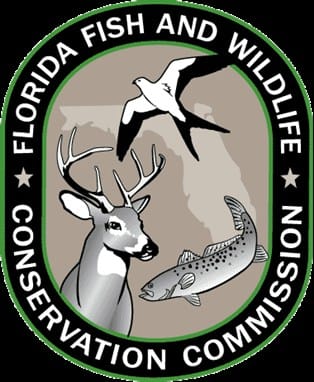Florida WC Moves Ahead with Easier-to-follow Marine Fisheries Regulations

The Florida Fish and Wildlife Conservation Commission (FWC) at its April 17 Commission meeting near Tallahassee discussed a draft proposal designed to make the state’s marine fisheries regulations easier to read, understand and enforce.
Current regulations contain inconsistencies from one species chapter to the next. For example, definitions and the location of specific rules vary from chapter-to-chapter. It is because of issues like these that the public asked the FWC to streamline current marine fisheries rules.
Cleaning up marine fisheries information in 68B of Florida Administrative Code will make it easier for anglers to understand and therefore enjoy Florida’s many saltwater fishing opportunities. It will do this by providing consistency among regulations and clarifying complex and confusing language.
The first part of the proposed cleanup and reorganization effort includes standardizing the format and rule language for 20 species chapters and relocating the regulations for swordfish, wahoo and sheepshead to new rule chapters of their own, separate from chapters dealing with other species. Neither of the changes will alter the meaning of these rules or how they are enforced.
The second part of the proposal includes the creation of a new “General” chapter, which will house definitions and regulations that can be applied to all marine fisheries.
Currently, there is no place for general definitions or rules that apply to all marine fisheries. Instead, individual chapters contain repetitive definitions or rule language, which can be cumbersome and confusing to the reader, especially when worded differently. These changes will reduce confusion and enhance compliance by ensuring there is consistency among wording and meaning, and by eliminating repetition.
All proposed regulations for the new chapter have been taken from existing species rules, and are therefore not new regulations. However, moving them to the new chapter will mean they apply to all marine fisheries, which could change how certain rules are currently enforced for certain species.
For example, a rule in place for red drum, reef fish and king mackerel, specifying vessel operators are responsible for any fishery violations that occur aboard a vessel, will be moved to the “General” chapter and applied to all saltwater fishing. This change will improve enforceability even if no one on the vessel is willing to claim responsibility.
Changes in definitions could also improve how the regulations are enforced. For example, the proposal would expand the definition of “Florida waters” to include any potential fishing site and the adjacent parking area. The definition of “harvest” would be expanded to include the unnecessary harming or destruction of marine organisms.
This rule-cleanup proposal, which will be brought before the Commission for final approval at its June meeting in Lakeland, is the first phase of an extensive rule-cleanup process being conducted by FWC staff, including members of the FWC’s Legal Office and divisions of Law Enforcement and Marine Fisheries Management.
The public is encouraged to offer input on this proposal by attending one of two public webinars April 22 or 24 from 6 to 8 p.m. EDT. Learn more by visiting MyFWC.com/Fishing and clicking on “Saltwater,” “Rulemaking” and “Upcoming Public Workshops.”
Future phases of the cleanup will include standardizing the remaining chapters in 68B; conducting a review of the FWC’s current local laws, which are specific to counties or regions, to determine which ones are still needed; and conducting a comprehensive review of Florida Statutes to determine which statutes need to be transferred to FWC rule or recommended for repeal.
Learn more about this proposal by clicking the “Commission Meetings” link MyFWC.com/Commission.

